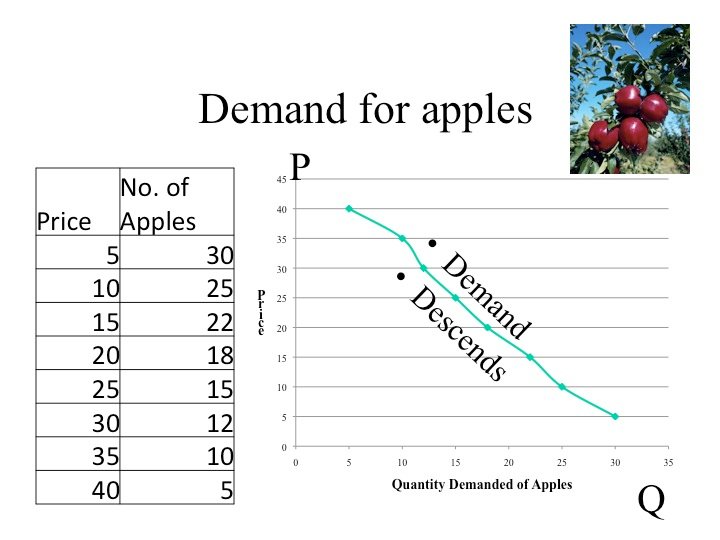
Supply and Demand should be minimally regulated
Bylund makes the case that prices are essential for conveying information in a market system in Chapter 3 of his book. He demonstrates that prices are signals that provide significant information about supply and demand, manufacturing costs, and customer preferences rather than merely random numbers. Bylund thinks that laws may skew these signals and obstruct the market's ability to operate effectively. I run my own company, therefore I am aware of how important pricing is to the market economy. Prices are not just random numbers or figures, but instead convey important information about supply and demand, production costs, and consumer preferences. Bylund argues that prices are vital communication tools in the market economy, and I agree with his viewpoint. Consumer preferences are among the most important pieces of information that pricing conveys. Making smart business judgments about what things to manufacture and how much to charge for them requires an understanding of consumer preferences. Entrepreneurs may ascertain the demand for certain items and take appropriate action by evaluating pricing signals in the market. For instance, if the price of a product is high, it indicates high demand, and entrepreneurs can respond by increasing production or raising the price to maximize profits. Bylund's view that prices are vital communication tools in the market economy is well-founded, and as a business owner and trader in the equity markets, I can attest to this fact. My entire job is to analyze supply and demand and take bets when I believe prices are not at their “true” value. Bylund even says
"Prices signal, coordinate, and motivate action in the market, and they do so in a decentralized and unplanned manner" (Bylund, 2016, p. 31).
This quote underlines the concept that prices are essential in the market economy because they transmit information about supply and demand, coordinate market participant activities, and influence economic actors' behavior. Bylund also explains that because of the decentralized nature of this process, no central authority or planning body is required to direct economic decision-making. Instead, prices act as a tool for the market's natural order, simplifying resource allocation and fostering innovation and growth. Making informed business decisions requires having access to accurate information about consumer preferences, manufacturing costs, and market competitiveness. Entrepreneurs can improve output, raise profitability, and maintain market competitiveness by understanding pricing signals and making the required adjustments. To ensure a just and fair market, I do, however, think that some rules may be necessary. Regulations that, for instance, forbid deceptive corporate practices or limit the formation of monopolies can aid in fostering competition and protecting customers. Therefore, I think it is important to strike a balance between allowing prices to function as communication tools and regulating the market to ensure fairness.
In his article, "The Use of Knowledge in Society," Hayek emphasizes the importance of decentralizing decision-making in the economy. He says,
"The peculiar character of the problem of a rational economic order is determined precisely by the fact that the knowledge of the circumstances of which we must make use never exists in concentrated or integrated form, but solely as the dispersed bits of incomplete and frequently contradictory knowledge which all the separate individuals possess" (Hayek, 1945, p. 519).
Hayek's argument highlights the importance of decentralizing decision-making in the economy and allowing individuals to make decisions based on their unique knowledge and experiences. This resonates with my experiences as an entrepreneur, where I have found that the most valuable insights and ideas often come from engaging with employees and customers who bring their unique perspectives to the table. I need to listen to both my customers' opinions and complaints, while also adhering to the wants and needs of my contractors that I hire. I cannot adhere too much to one side, or else the business will be off-balance. A decentralized market economy can help to unlock this dispersed knowledge and lead to more innovative and efficient outcomes by allowing “balance” in all businesses. In addition, Hayek argues that knowledge is dispersed throughout society and cannot be centralized in any one entity, including the government. Therefore, he advocates for a market economy that allows individuals to make their own decisions based on their unique knowledge and experiences. The beauty of the internet is knowledge is now decentralized to a degree. The Internet is the great equalizer to the world, as everyone that has connection can leverage it to their benefit and also detriment. Not too long ago, only a small percentage of the population had the privilege of education. Now, Over 4 billion people have access to cellular broadband and can search the web as they please. Of course, there are numerous downsides of the internet, however, I believe it is net positive, as it gives everyone a chance.
Lastly, both Bylund's Chapter 3 and Hayek's "The Use of Knowledge in Society" provide valuable insights into the need for balance in the economy. While I agree with Bylund that prices are important communication tools in the market, I also believe that some regulations can be necessary to ensure fairness and balance across the economy. Additionally, I support Hayek's argument for a decentralized market economy that allows individuals to make their own decisions based on their knowledge and experiences. As an entrepreneur and consumer, I will strive to strike a “balance” between these two perspectives to improve my business.
Sources:
Image: Brinley, D. (n.d.). Demand and Supply. Brigham Young University-Idaho. https://courses.byui.edu/econ_150/econ_150_old_site/lesson_03.htm
Bylund, P. L. (2016). Chapter 3: What Prices Communicate. In Seen, the unseen, and the unrealized: How regulations affect our everyday lives (pp. 27–45). essay, Lexington Books.
Hayek, F. A. (1945). The Use of Knowledge in Society. American Economic Review, 35(4), 519-30.